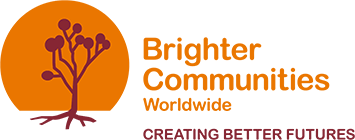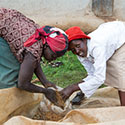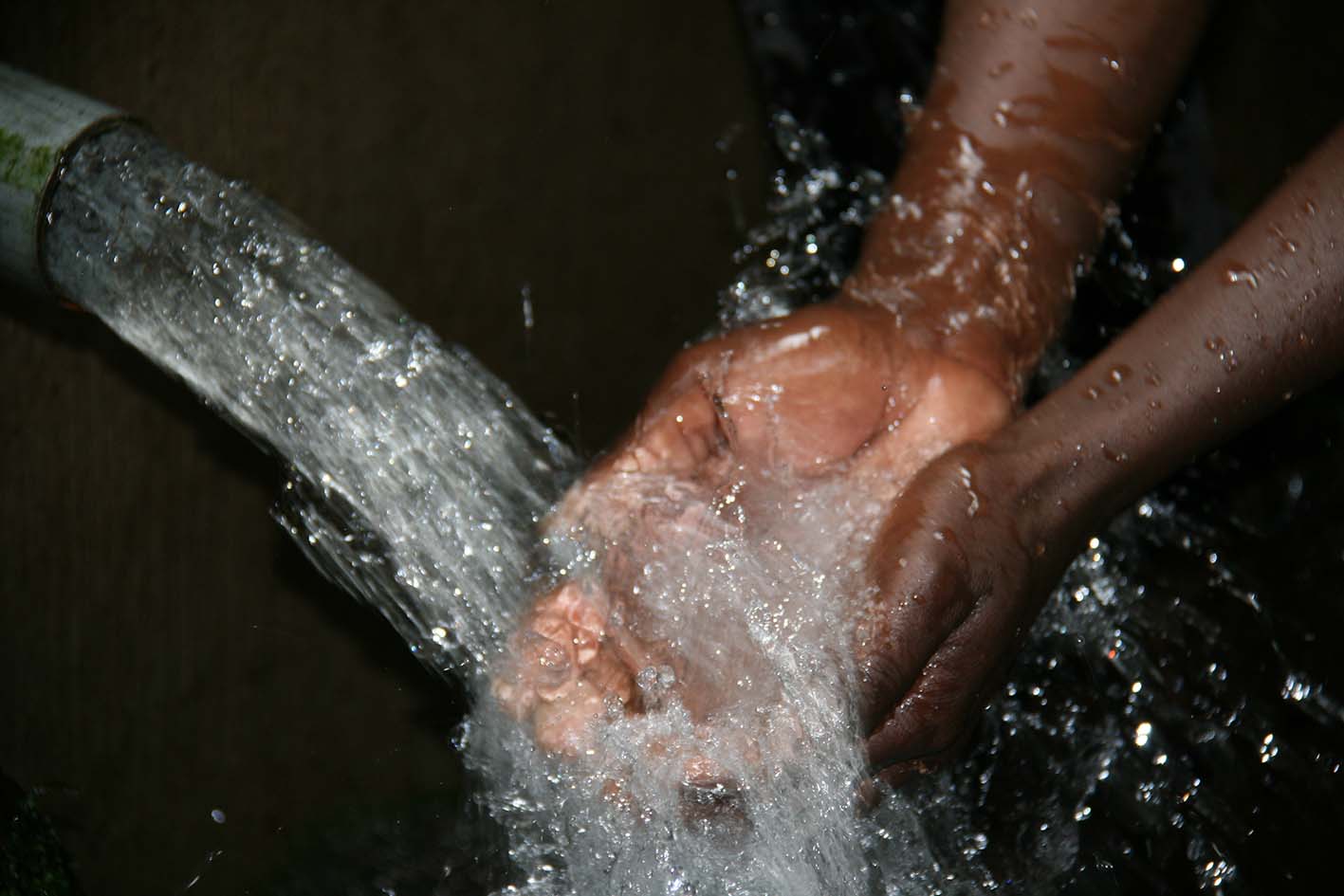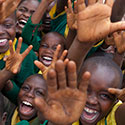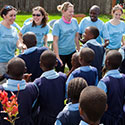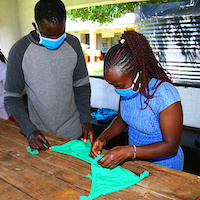Water
The absolute necessity for adequate WASH (Water, Sanitation and Hygiene) facilities is understood in all societies. And yet many people in the developing world still do not have these basic requirements. Equally they often don’t understand the significance of having these facilities and improvements to their health, their families and their income that these WASH facilities will bring.
The JMP (Joint monitoring Programme, a UN report) states that in 2012, 52% of people living in rural Kenya do not have access to improved sanitation and 46% do not have access to safe water supplies and these rates are typical of Kipkelion and Londiani. As a result diarrhoeal diseases are common, causing avoidable deaths in babies and young children and high levels of absenteeism in schools. Good hand hygiene practices can lead to 40% reduction in childhood illnesses including diarrhoeal and importantly, respiratory illnesses, a major killer in rural Kenya.
Brighter Communities Worldwide are supporting integrated programmes in all WASH fields including new latrines and wash rooms in schools, hygiene programmes in schools and homes and new Water Projects for communities.
We support and promote water projects that will improve health indicators. That in itself is no surprise; safe water is obviously connected with our aims of helping to improve health in the area. But for us safe water means much more. It also boosts education. That’s because the more efficient – and more local – a clean water supply the less travel is needed to find it and the less schooling is missed. There’s an economic element too. If less time and energy is wasted business efficiency is improved. And if visitors can expect clean water and sanitation then economically useful projects like sustainable tourism become more viable.
In supporting Water Project, Brighter Communities Worldwide have the following criteria:
- The community will have approached Brighter Communities Worldwide and have formed a registered Water Committee.
- The community as a whole will have strong buy in and be willing to cost share.
- The community will train members to manage both the financial and technical elements of the water project, e.g. caretaker, plumber, book keeper, meeting chairing.
- We work closely with the Ministry of Water, especially the District Water Officer and they must support the project.
- The project must be sustainable (pumped supplies have significant sustainability issues and we are fortunate to have many good gravity systems in area).
- The Water Committee must register as a Water Service Provider.
As ever, of course, our approach is cooperative. Communities educate and advise us as much as we and our volunteers help them. After all, what works for one community does not always work for another, for social, economic and even geological reasons. Therefore community water meetings are held, where project visibility and sustainability are discussed, and ideas are shared. We work closely with the Ministry of Water, taking their advice and partnering with them to raise funds for projects. In Londiani/Kipkelion we have been fortunate in being able to work with communities to develop gravity fed water projects, these being far more sustainable than pumped schemes. Current and past projects supported by FOL has potential to serve almost 30,000 people.
As for results, there are many approaches to water supply and usage supported by us. Some of them include:
- rain water collection tanks
- gravity water schemes
- protected intakes from natural springs
- SODIS
- shallow boreholes with handpumps
Rain water tanks
We install community water tanks in the villages of Lelsothet, Kapianga, Masita, and Benditai. These are community water tanks, providing the community with clean, easily accessible water. Each tank is shared by a number of families. These tanks have been a great success, and we are currently fundraising to install more water tanks in the area.
For schools, a 32,000 litre ferro-cement rain water harvesting tank is often the best solution – several of these tanks have been installed in schools throughout the District as part of the Healthy Schools Programme.
Gravity water schemes
Londiani and Kipkelion have a number of springs, high up in catchments and these are excellent sources, normally free of contamination and are by their nature more sustainable than pumped systems.
Three schemes that we have or are currently supporting can serve upto 30,000 people. The impact of these district water projects are very significant.
Schemes include Ndubusat, Nduro and Kimologet
Protected intakes from natural springs
Protecting the immediate catchment of a source has improved many water supplies;
- Fencing area upstream of source to keep animals from defecating near supply
- Directing water vis a pipe so containers are not dipped into the water source
- Directing the spring water via a number of layers of sand and gravel to act as filter
- Constructing a concrete apron with drainage run off to ensure a clean collection area
SODIS
It’s not always about large-scale supply involving tanks and gravity. SODIS is a simple and effective approach to supplying small volumes of clean water. SODIS is an abbreviation of solar water disinfection and is a very simple way to disinfect drinking water. Contaminated water is poured into a transparent polyethylene terephthalate (PET) bottle or glass bottle. It is then exposed to the sun for six hours. UV-radiation kills the pathogens that can cause diarrhoea, a major preventable cause of death. And it’s something we actively promote. In fact construction and use of a SODIS to purify drinking water has been taught as part of the Healthy Schools Programme.
Shallow boreholes with handpumps
In several areas in Londiani the geology leads itself to use of shallow borehole which have water extracted by hand pumps. These are ideally centrally located in a village away from any latrines and will serve a number of households.
Maintenance courses and health education
Once the tanks, pipes and rainwater collection systems, are in place, that’s far from the end of the story. We work with communities to plan and offer maintenance courses that will guarantee the long-term usefulness of the systems installed. All tank recipients must attend a water maintenance course before the final handover of the tank to ensure efficiency.
And once the water is available, it’s also got to be put to good use. Health education is intimately tied in with water supply. In a country where approximately 80% of hospital attendance is due to preventable diseases, and 50% of these diseases are water and sanitation related, not just access to clean water but spreading the word about hand washing and hygiene across all levels of society is essential – and part of the work we support and promote.
…and we are doing much, much more
The successful supply of tanks, gravity systems and protecting natural springs are sources of great pride to communities, our volunteers and ourselves. But as the area grows so will its needs. Beyond the projects that will bring water supplies closer to communities and ensure that they are safe to use, the area will eventually require major infrastructural improvements.
We can’t build reservoirs or major pipelines – but we can, and do, work with the relevant ministries and community groups to raise funding and plan ahead for a time when all the region’s safe water needs can be met.
